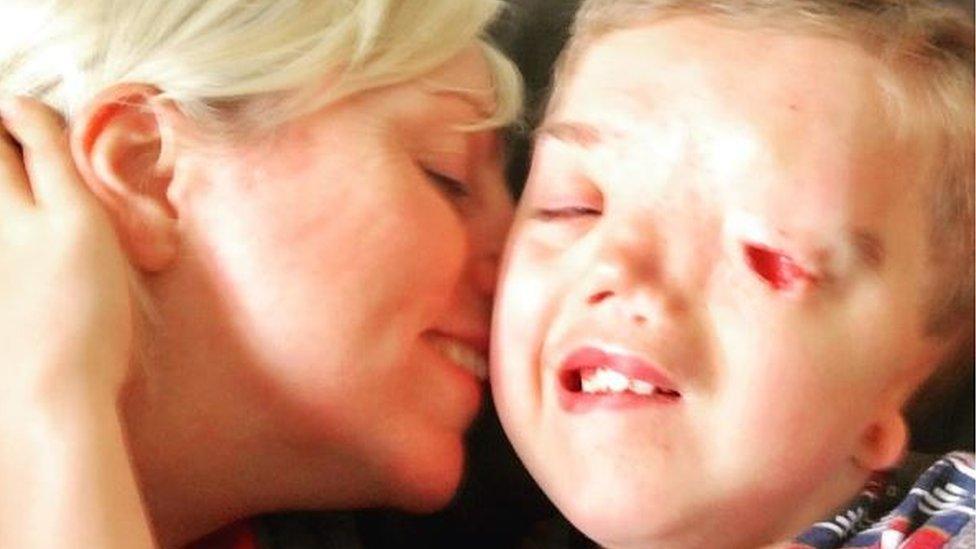Mum's SEND group attracts more than 2,500 parents
- Published
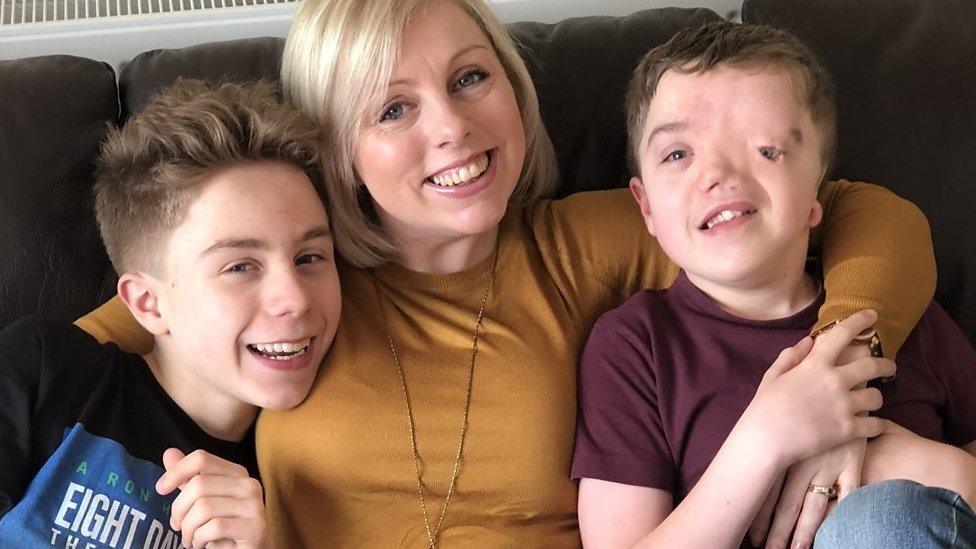
Charlie Beswick, mum of Oliver and Harry, has developed a range of resources to help parents
A woman who set up an online group for mums of children with special educational needs and disabilities (SEND) has seen it grow to help more than 2,500 parents.
Charlie Beswick, who had twins in 2005, said she launched SEND Gin and Cheese because there was no wellbeing help for those in her position.
One son, Harry, was born with a rare craniofacial syndrome, external and the left side of his face did not develop fully.
She said the group was "growing daily".
SEND Gin and Cheese, established last year, has since become a community interest company (CIC) which also holds events nationally to support not only mums but the children themselves and their siblings.
Another group has recently been set up for dads in particular.
"I really can't believe the response, although to me it just indicates the massive gap that there is in the need for this sort of support," said Ms Beswick, from Biddulph, Staffordshire.
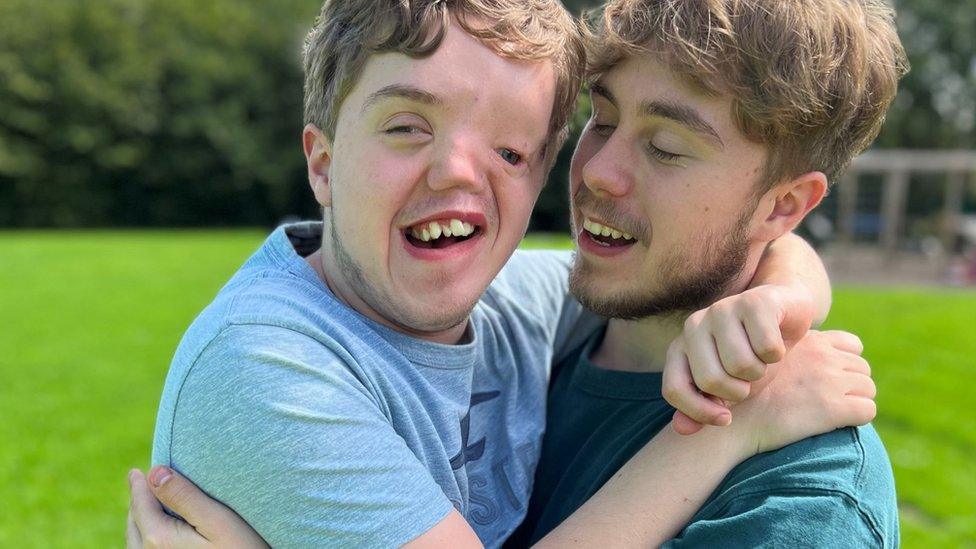
Teenage Harry with twin brother Oliver... Their mum set up a support project many years after their birth, citing frustration there was still no wellbeing support for parents
Ms Beswick said she had found little help after her sons were born, adding: "Fast-forward 17 years and I realised that there was still a huge lack in mental health support for mums at the point of their child's diagnosis."
'Incredibly lonely'
"Having a disabled child or one with additional needs is an incredibly lonely journey and one which even your friends and family can't truly understand unless they've lived it."
The mums group and SEND Support for Dads offered "a community of people who truly understand," she said.
"Not just the struggles but the wins as well - when your child tries a new food or maybe says their first word, even when they are 12 or 13 years old.
"It's about empowerment, it's about support, it's about sign-posting parents to the right services if that's what they need, and really just getting their mental wellbeing in the right place."
This put parents in a better position, she said, to "fight for our children, because unfortunately we have to do that" to support them.
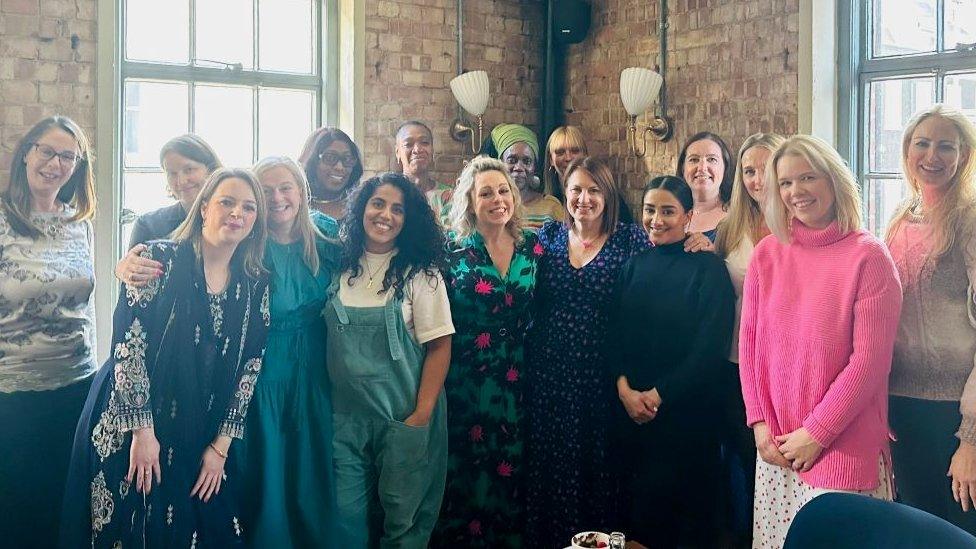
The group is looking for sponsors so parents can attend meet-up events, such as this one in London
She explained that without her group, parents might think it was "just us" when they saw people living "perfect lives" on social media but the project helped them to realise they were not alone.
"Sometimes being vulnerable can be very scary and putting yourself out there and explaining that 'I am struggling, I am finding this hard' can be really daunting but doing that in a safe space where there is no judgment and only support is really powerful," she said.

Follow BBC West Midlands on Facebook, external, Twitter, external and Instagram, external. Send your story ideas to: newsonline.westmidlands@bbc.co.uk, external
Related topics
- Published14 October 2023
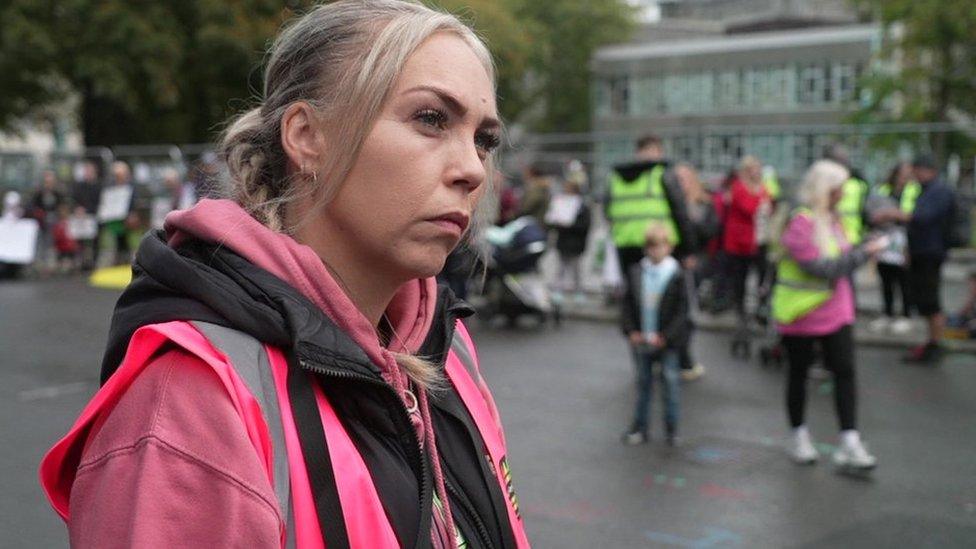
- Published14 October 2023
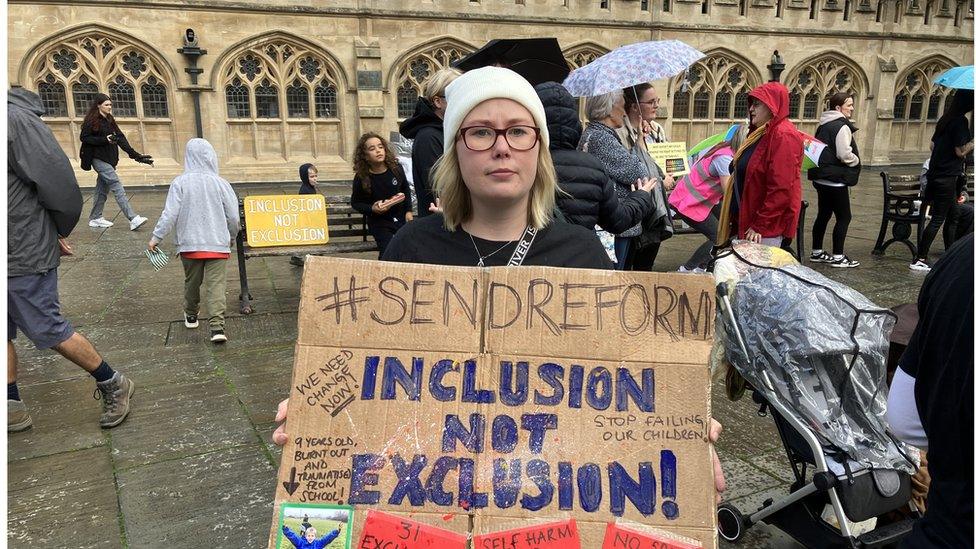
- Published14 September 2017
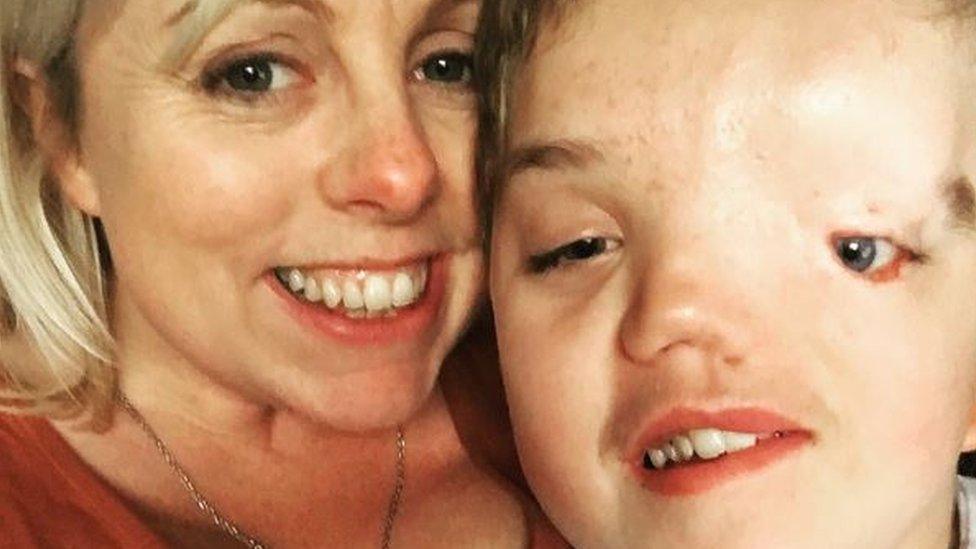
- Published13 September 2017
